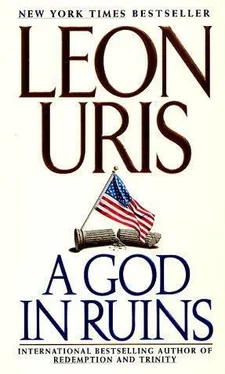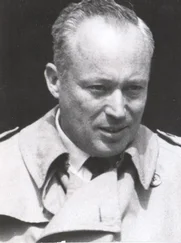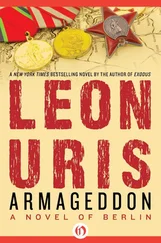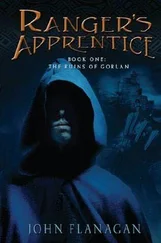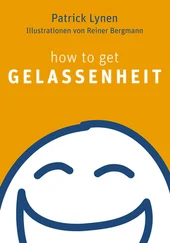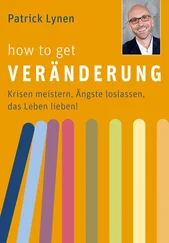While Carlos had direction, Quinn sort of treaded water, mainly honing his ranching skills.
Dan O’Connell watched Quinn with intent. Dan didn’t have college because of family economics.
He kept track of Quinn’s growth and skill on the fields of play. Quinn would stand five feet ten inches and weigh a hundred and seventy pounds, most of it brick hard.
Troublesome Mesa High School put weak teams on the field, fortunately, to play other weak teams. Quinn was a nifty first baseman in baseball. He played ice hockey and ski raced in a rather mediocre manner.
Dan harangued him into football. Quinn played fullback on offense and linebacker on defense. He was average to everyone except Dan O’Connell.
Dan worried about the growing bookshelves in Quinn’s room, some on subjects he did not comprehend. He saw it as a symbol of the boy’s desire to leave home permanently. For Daniel O’Connell it would be the ultimate nightmare.
As time went by, there was less and less interaction between Dan and Quinn. It seemed that Dan had an agenda, hitherto unseen goals he was slowly uncovering.
To make matters very lonely, Carlos Martinez went off to the University of Texas in Austin, where he loaded himself up with courses.
The two boys wrote quite often at first, but as Carlos went into a new atmosphere, mail time lengthened. Carlos simply studied and let women chase him.
Their first meeting back at the ranch was tinged with sorrow, for they
knew that what they had once had was faded and would not return. Carlos even looked different, what with his mustache and all.
Quinn had his little pal, Rita, who seemed very content in being nearby. Almost into her teens, her body was beginning to bloom. Still a kid, unfortunately, but Rita was going to be extremely beautiful.
Quinn found himself pondering the issues of his Catholicism. School out, Carlos gone, and even Rita away with her father in Mexico. He had time to find a boulder by a stream, throw in a line, and think. The spark of his meditation was the devoutness of his parents, which often led to dead-end attempts at explanations.
Carried to somewhat of an extreme, the ranch and formal garden carried a dozen shrines, and every bed in the house was guarded by a cross.
Quinn knew better than argue the subject with his parents.
The arrival of Father Scan came on a good wind. He was a wise observer of the family progress. A certain quality of conversation was now possible on a hundred subjects Dan and Siobhan knew nothing about.
On the porch of Father Scan’s apartment, Quinn became an evening guest.
“Lonesome, Quinn?” the priest asked.
“In a manner of speaking. There’s plenty to do, and I’ve a bushel of great friends. What I seem to be missing is someone to talk to. Carlos is staying in Austin this summer. He’s maniacal to complete his courses. I had wonderful hours with Reynaldo Maldonado, but he and Rita are in Mexico till school starts.”
“Your dad tells me you’re a natural for a football scholarship to one of the smaller colleges.”
“My dad looks at me and sees Gayle Sayers. He’s never really asked,
but I don’t like football. Not that I mind mixing it up. I’m pretty
good at ice hockey. Football doesn’t excite me like, pardon the expression, baseball. But Dad seems obsessed with getting me a football scholarship.”
It was not the football scholarship, it was control of his son. Father Scan knew what he had suspected, that Dan was setting the boy up as an alter ego. It wasn’t working. Every time they grated on one another, Dan feared it was Quinn’s desire to bolt, to search for his birth parents. His fear became unreasonable.
It worried Quinn as well. “Uncle Sean, I can’t control certain insatiable desires. I can’t fathom why God has taunted me with the secret of my birth. So I look deeper into my Catholicism to find comfort from my frustration. Please know that my loyalty is to Dan and Siobhan, but I have lost some trust in the Church. I’m sorry.”
“Oh, I’ve pondered on the same thing,” Sean said. “The system must be doing something right; it’s the oldest and strongest non-military organization ever known to man.”
“How can I find solace in so many alcoholic priests? Or a virgin birth? I almost died when I found out that Saladin, the Moslem, was the true hero of the Crusades, and the Crusaders were mindless butchers. And the Inquisition and the Holocaust. All of these were done by primarily Catholic nations.”
Father Sean held his hand up. “There are many paths to God; we are only one of them. We must put on a show for the wealthy who identify with the pomp and gold and splendor. The Church’s power is their power.
“The same show is performed for the hopeless. Human fodder. They use Catholicism for their own purpose, for survival. They sacrifice chickens on the cathedral steps in some cultures. Each group’s needs twist Catholicism around to fill those needs.
“Evil men attend church,” he went on. “Evil men pray in synagogues, and evil men perform mutilations on women to the glory of Allah. Evil men pay large sums for us to renew the leases on their consciences. Men invented the system because they needed it, and the system, faulty as it is, works.”
Wise man, his uncle, Quinn thought. His wisdom made him realize how lonesome he was for the rich food of ideas and conversations.
“There is one bottom line for me,” Father Sean said, “and that is the message of love from Jesus. All the rest of it, miracles and saints and whatever we’ve contrived or distorted, doesn’t matter. Love is the bottom line. Find something in that message you can weave into your life.”
Even as he spoke, Father Sean realized that Quinn would always inquire, always challenge a Church that did not promote inquiry and challenge. But no other religion would work for him, either, because he could never truly accept what was unacceptable to him.
It seemed that each turn in season, particularly coming out of winter, the divide in the father-son stream widened. At Troublesome Mesa School, with four hundred students from kindergarten through high school, Quinn was one of the campus heroes. A charming personality beamed from a charmed spirit. He was a nice person. Kids gravitated to him.
Father Sean, with great care and diplomacy, got Dan to thinking:
Quinn’s quest for his birth parents was a natural human drive known by every orphan. It would not endanger his relationship with Quinn.
Moreover, Quinn was an intellectual. Yet they had the Dodgers in common and Duke Snyder and Jackie Robinson and Camp and Pee Wee Reese and Gil Hodges and Preacher Roe. But the Dodgers upped and left Brooklyn.
Maybe, just maybe, Dan began to think, there could be a real mending instead of the growing aggrievement if he could think along the lines of a great scholastic university for his son.
Constraint took over. When civility has to be practiced with caution, it becomes a draining way for two people to communicate.
They ceased doing things together. Fishing or the rodeo or canoeing or riding their dirt bikes. With graduation from Troublesome Mesa School, the time had come to make a decision, perhaps the first life decision.
Carlos Martinez wanted Quinn to come to Texas, but it was a selfish request. At the speed Carlos was pushing through college, they’d be together for only a year or so.
Dan O’Connell applied to a number of universities for Quinn, some “just for the hell of it.” In a moment of magnanimity, and to prove to Quinn he had his interest at heart, he sent Quinn and Siobhan back East to look over some of the great campuses. Not that anybody ever gave Dan O’Connell this kind of golden chance. I’ll never, Dan thought, get him to understand that sports is where a young man sets his mark for life. But his life is his life. If he gets into a fine Eastern school, then he’ll be morally indebted to return to Colorado. Dan was wrapped up in scenarios, and none of them thought through seriously.
Читать дальше
